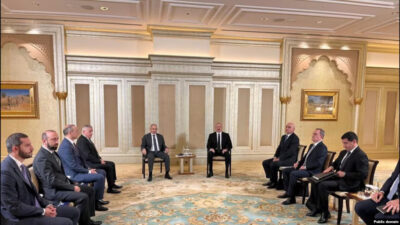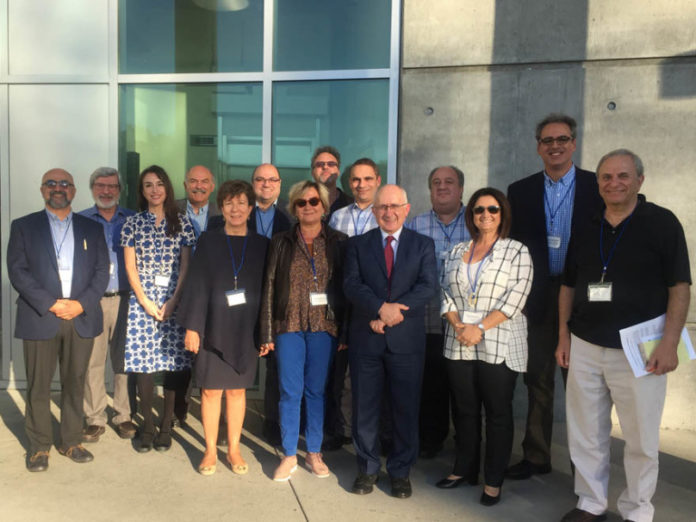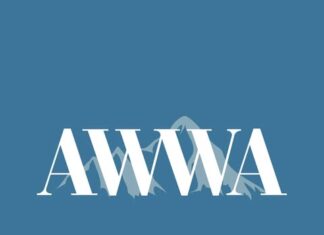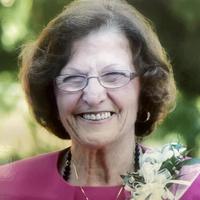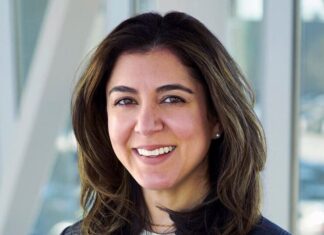IRVINE, Calif. — On September 29, the majority of current Armenian Studies chairs and directors in the United States, along with representatives of the Society for Armenian Studies (SAS), National Association for Armenian Studies and Research (NAASR), and Calouste Gulbenkian Foundation met for an “Armenian Studies Chairs and Directors Workshop: Current Challenges and Future Prospects” at the University of California – Irvine (UCI). The meeting, which was the first of its kind on the West Coast, was organized by UCI’s Armenian Studies Program, the UCI Meghrouni Family Presidential Chair in Armenian Studies (Professor Houri Berberian), the UCLA Richard Hovannisian Endowed Chair in Modern Armenian History (Professor Sebouh Aslanian), and the Society for Armenian Studies (Prof. Bedross Der Matossian, SAS President). The goal of the workshop was to begin serious discussions about the challenges facing Armenian Studies in the present and the future. In addition, the participants concentrated on the prospects moving forward. This meeting took on even more importance given that the last such meeting took place 10 years ago at the University of Michigan.
The day began with welcoming remarks by Berberian, who stressed the importance of meeting regularly and keeping lines of communication open among chairs and directors. These remarks were followed by brief “state of the program” reports by the attendees. The focus of discussions centered on the following key items: the past, present, and future of graduate student training, specifically currently available sources for funding, the importance of interdisciplinary research and training as well as language training; contributions to the Armenian Studies field in the context of other fields and disciplines, in particular ways in which Armenian Studies may benefit from greater engagement with other fields, making interventions not only within Armenian Studies but in other fields as well; job market challenges for graduate students, especially ways in which graduate students can be trained and equipped with the skills and experience for employment more broadly for academic and non-academic job markets beyond Armenian Studies; the importance of cooperation, collaboration, and collegiality among chairs and directors as well as the SAS, including increased participation in the SAS and creation of an email forum for chairs and directions to facilitate discussions about the future of Armenian Studies programs and for exchanges of ideas and material as well as an avenue through which to take collective action if/when necessary; resources – both financial and library/archival; fundraising possibilities and challenges and the future of chairs, specifically those at Harvard and Columbia.
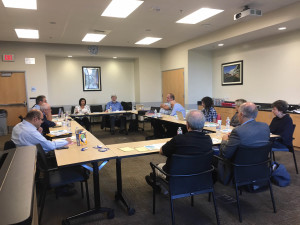
Those in attendance agreed to continue to converse, consult, and collaborate for the greater good of the Armenian Studies field, current and future students, and the future of the programs.
The next two meetings of current chairs and directors are scheduled to take place in Boston, hosted by NAASR (2020), and the University of Southern California, hosted by the Institute of Armenian Studies (2022). The fruitful and productive workshop was followed by a reception open to the public where – after welcome remarks by School of Humanities Dean, Dr. Tyrus Miller, and Berberian and Der Matossian – community members, faculty, graduate students, and workshop attendees had the opportunity to meet and converse.
